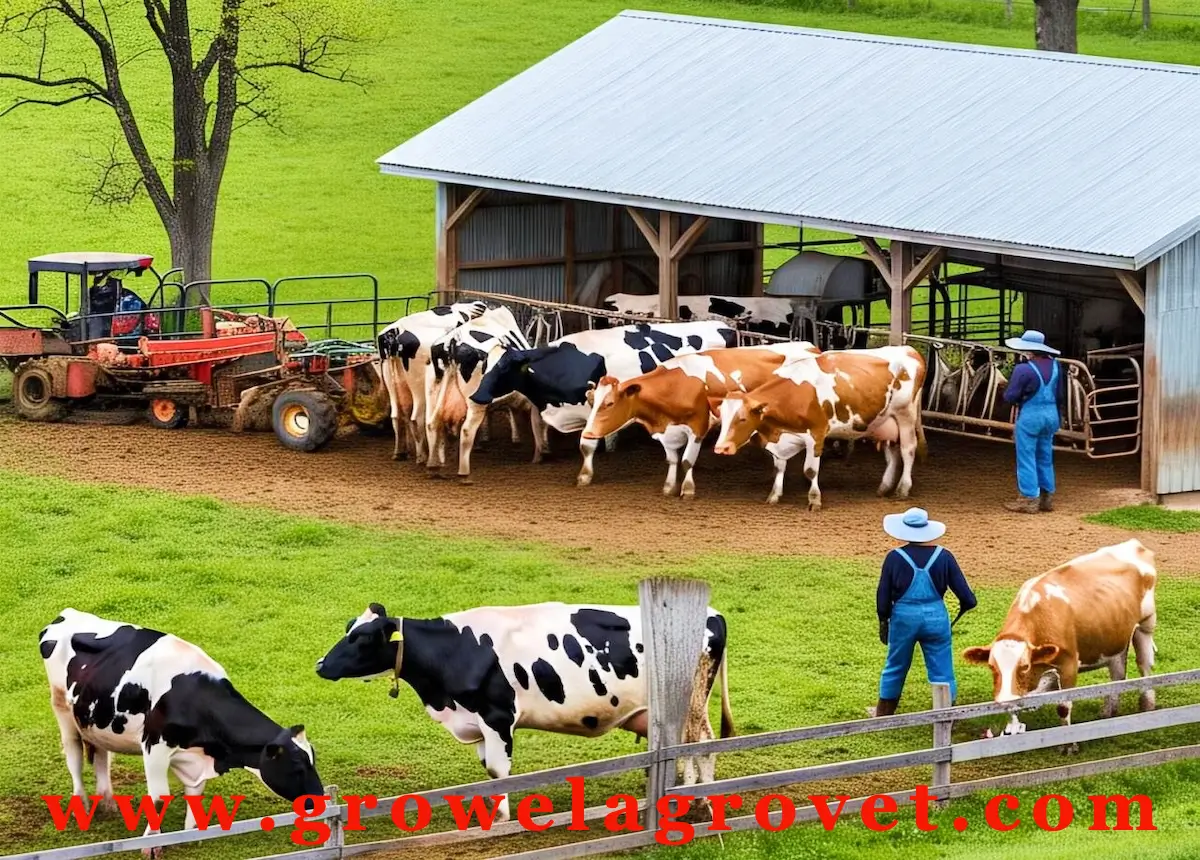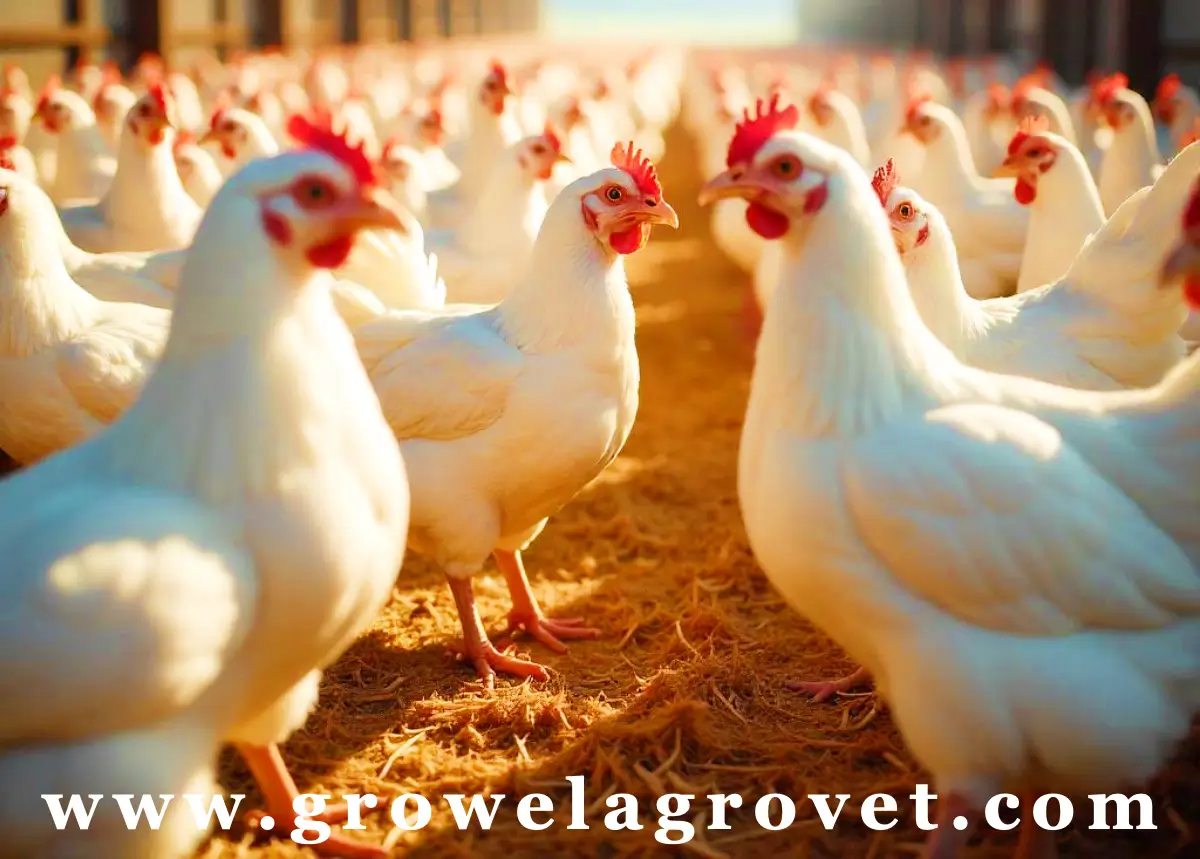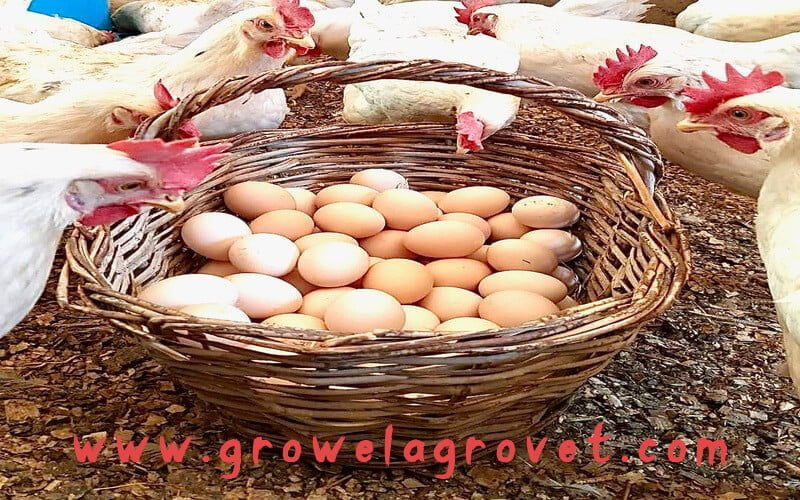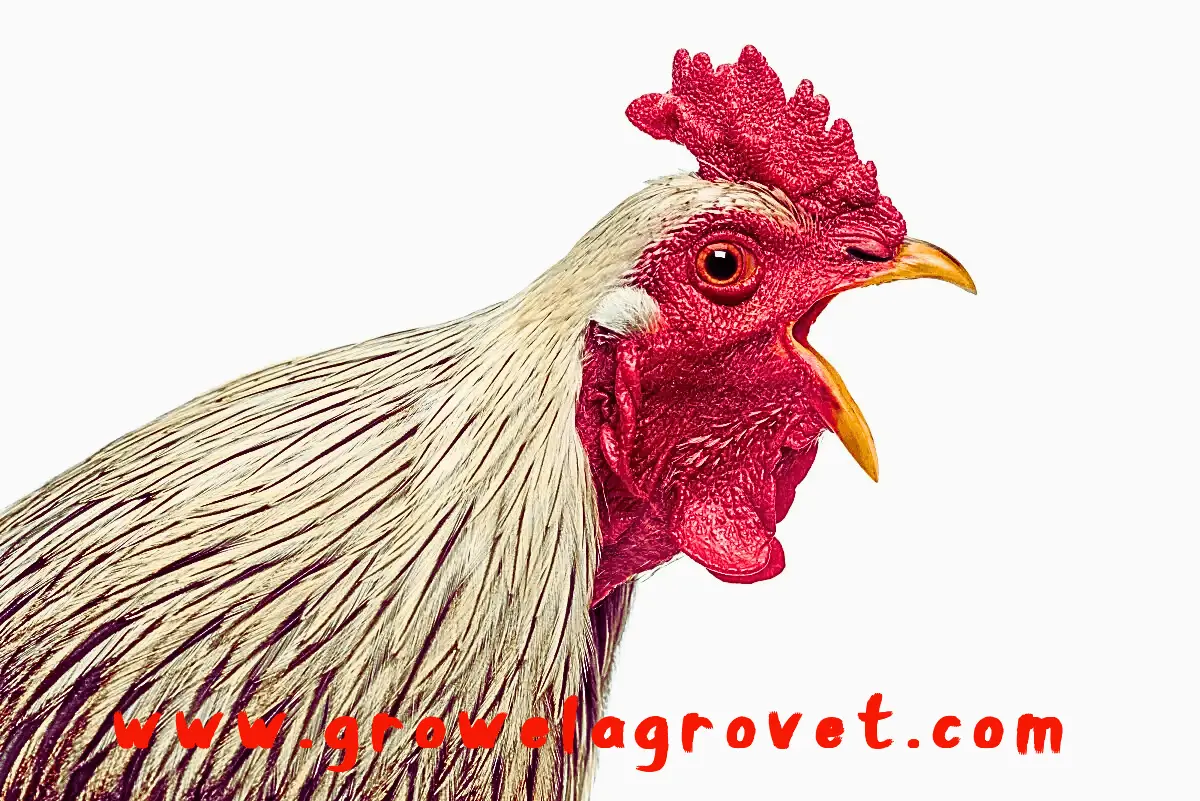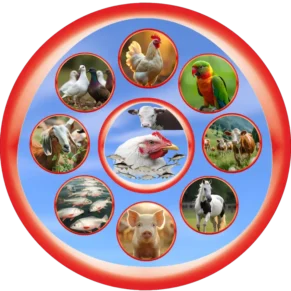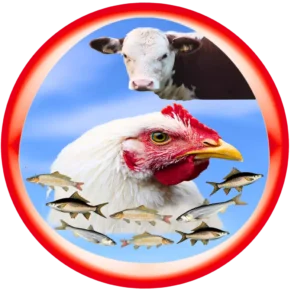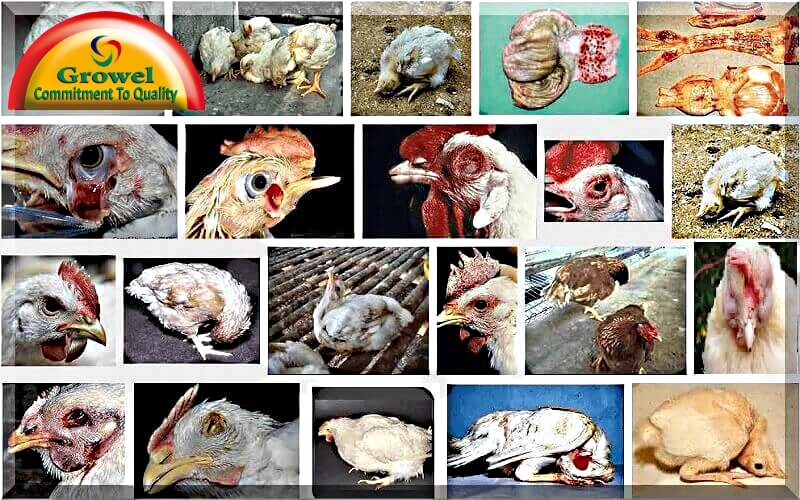 Poultry Diseases prevention and control of one of the most important factor for the profitability of poultry business.This Prime fact provides a brief overview of the importance of knowing your cost of production, and bench-marking to monitor business profitability plus how to use financial ratios to gauge future viability. Following basic factors should keep in mind for preventing and controlling of poultry diseases.
Poultry Diseases prevention and control of one of the most important factor for the profitability of poultry business.This Prime fact provides a brief overview of the importance of knowing your cost of production, and bench-marking to monitor business profitability plus how to use financial ratios to gauge future viability. Following basic factors should keep in mind for preventing and controlling of poultry diseases.
Major Poultry Diseases :The two most serious poultry diseases that must be kept out of poultry flocks are Newcastle disease and avian influenza. Although these two devastating poultry diseases are not present in commercial poultry in Australia, the poultry industry is at risk from their introduction. The compulsory vaccination program against Newcastle disease (ND) has helped protect the industry against both endemic and exotic ND. Occasionally diseases occur in Australian poultry flocks. Some poultry diseases are controlled by vaccination or medication strategies. Others are controlled by keeping them out of farms.
Poultry Diseases which are controlled by vaccination include:
- Infectious Laryngotracheitis in Poultry
- Coryza in Poultry
- Chronic Respiratory Disease in Poultry
- Fowl Pox in Poultry
- Fowl Cholera in Poultry
- Newcastle Disease in Poultry
- Egg Drop Syndrome 76 (EDS 76) in Poultry
- Infectious Bronchitis in Poultry
- Avian Encephalomyelitis in Poultry
Some poultry diseases can be controlled by both vaccination and keeping them out of farms. These include coryza; chronic respiratory disease (CRD), caused by Mycoplasma gallisepticum; infectious laryngotracheitis; lice and mite infestations; chlamydiosis; blackhead; and internal parasites.
How to Keep Diseases Out :Poultry disease can enter your farm via carrier birds, people, wild birds, day-old chickens, equipment, wind, pets and insects.
Birds :- Apparently healthy birds carrying a disease organism can be a source of infection of other birds. If disease-carrying started pullets are introduced onto an uninfected farm they can spread disease. Backyard, show and aviary birds can also carry disease.
Prevention :-Do not keep backyard, aviary, show birds or other birds such as emus on commercial poultry farms. Make sure that you, your employees and visitors to your sheds have not had any contact with these birds. Do not keep domestic ducks on poultry farms, other than duck farms. Purchase your started pullets from reputable suppliers where the disease status is known.
People :- People are probably the second most common carrier of poultry diseases. Disease can be carried on footwear, hands, clothing and possibly in the nostrils. Visitors from overseas could spread exotic diseases. Poultry producers, family or staff members can bring disease back onto farms.
Prevention :-Do not allow people onto your farm unless they have some essential task to perform. To safeguard the health of your flocks, make sure that contract work crews, service people and veterinarians who enter sheds take stringent precautions such as washing their hands and changing their overalls and shoes before entering your sheds. This applies particularly to visitors who have been on other poultry farms that day. The poultry farm should be surrounded by a security fence and have a single gateway fitted with a ‘Restricted Access’ sign. Do not allow people who are picking up eggs, or sales and feed delivery personnel, to enter sheds. If your birds are kept on the floor there is a risk of spreading disease if you wear the same pair of boots into different sheds. Keep a separate set of boots for wearing in each shed and store them in a receptacle outside the door.
Wild Birds :- A surveys in Australia indicate that a very small percentage of waterfowl are infected with avian influenza (AI) viruses. The H5N1 AI virus which is currently causing problems around the world has not been found in Australia. Water carrying these viruses is thought to be responsible for some avian influenza outbreaks. Pigeons contaminating feed in the United Kingdom in 1984 caused 23 cases of Newcastle disease. Carrion-eating birds such as crows can spread disease in free-range enterprises. Wild birds can also spread external parasites.
Prevention :-Great effort is warranted to make sure that wild birds, especially waterfowl, cannot enter sheds. Bird-proof your sheds, and shut the doors when the sheds are not being attended. Install plastic hanging strips to deter birds while the sheds are being used. Discourage waterfowl from coming close to sheds by cleaning up feed spillages promptly and draining wet areas near sheds. Make sure that water for drinking and fogging is not contaminated by free-flying birds. Chlorination or ultraviolet treatment is recommended for all dam or river water and this should be combined with suitable water filtration. Make sure that all water tanks are covered adequately and that feed is not contaminated by wild birds, animals or vermin.
Day-Old Chickens :-Egg-borne poultry diseases can be transmitted from the infected hen to the day-old chicken via the fertile egg. Two examples are:
- Chronic respiratory disease, ie. CRD in poultry caused by Mycoplasma gallisepticum;
- Infectious synovitis, caused by Mycoplasma synoviae.
Prevention : – Day-old chickens can be bought free of M. gallisepticum.
Equipment :-Poultry diseases can be introduced on equipment which is shared between farms. Poultry crates and fibrous egg flats can be transmitters of disease organisms. Avian influenza, EDS 76, Newcastle disease and northern fowl mite, among others, can be transmitted from farm to farm on egg flats.
Prevention :- Do not share equipment between farms and do not use second-hand egg fillers.
Wind Spread :-Some poultry diseases, particularly respiratory diseases, can be blown in the air from one farm to another. This commonly occurs at night or on cloudy days when the sun’s ultraviolet radiation is not present to kill the infective agent. There is evidence that chronic respiratory disease, Mycoplasma gallisepticum, avian influenza and Newcastle disease may be spread this way.
Prevention :- Keep poultry farms as far apart as possible if you are setting up a new farm. Sheds should also be built as far from the road as possible. Trees growing between farms and between the farm and the road will break up wind movements.
Pets :-Dogs and cats can carry infectious material on their feet and coats and can put your birds at risk if they visit neighbouring farms or dead-bird-disposal areas.
Prevention :-Secure your poultry sheds against the entry of dogs and cats. Keep the doors closed when your sheds are not being serviced.
Insects :-Mosquitoes can transmit fowl pox, and flies can spread some species of tapeworm, Newcastle disease and salmonella.
Prevention :Vaccinate all birds against fowl pox if mosquitoes are a problem, and reduce the number of flies.
How to Stop Poultry Diseases Spreading :The following procedures won’t stop poultry diseases getting into farms, but they will stop them spreading and reduce their severity:
- Ensure all birds are correctly vaccinated and medicated. Follow a suitable vaccination regimen for the diseases that occur in your area. Use and care for your vaccines as directed on the label. Preventative medications (for example coccidiostats) may be necessary for some conditions. Vaccination against Newcastle disease is compulsory in NSW and most other states.
- Have one age of bird per farm. Having one age of bird per farm allows any acquired diseases to be eradicated. Make sure that incoming started pullets and day-old chickens are free of disease and that strict quarantine procedures are in place on the farm. After the batch of birds is sold, clean the sheds and equipment thoroughly with Viraclean and allow 2 weeks (the depopulation period) before bringing in the next batch.
- Use all-in all-out sheds. If it is not practical to have only one age of bird on the farm, reduce the number of age groups to a minimum. If you have fewer age groups than sheds (for example if you have four sheds and three age groups), try to have the same age group in the sheds that are closest together. Egg packers and other workers should preferably be allocated specific sheds to work in. If this is not possible and they have to go into all the sheds, the general direction of movement should be from the youngest birds to the oldest
- Dispose of dead birds properly. Dead birds should be quickly burnt, deeply buried or effectively composted and should never be fed to cats or dogs. Dead birds left lying around the farm can spread disease to other sheds and neighbouring farms via carrion-eating birds,dogs, cats and rats. Recapture escaped birds. Recapture escaped birds quickly. If a bird has been free for an undetermined length of time and has got out of the shed, it should not be returned to the main flock. The bird-proofing recommended to stop wild birds getting into your sheds will also stop escaped birds from getting out.
- Disinfect drinkers and feeders with Viraclean on a regular basis (daily). Plan periodic clean-out, clean-up and disinfection of houses and equipment with Viraclean. Remember that drying ,sunlight and spraying Viraclean are very effective in killing many disease-causing organisms.
- it is highly important that water provided should be free of microbial contamination to ensure flock health and performance, and food safety. Therefore, water sanitation is a very crucial step in a poultry operation and should be effectively carried out and always use Aquacure for water sanitisation .
- Inspect your farm daily. Finally, inspect your sheds daily so that any problems can be identified early and rectified quickly. This will minimise the degree of poultry diseases challenge. You should also read Day Old Chicks Buying Guide
If you are into poultry related business & want to earn maximum profit in your business then please join our Facebook group How To Do Profitable Poultry & Cattle Farming ?
 Viraclean A Powerful Poultry Disinfectant Products & Farm Disinfectant for Preventing Poultry Diseases
|  Gout Suraksha गाउट सुरक्षा |


